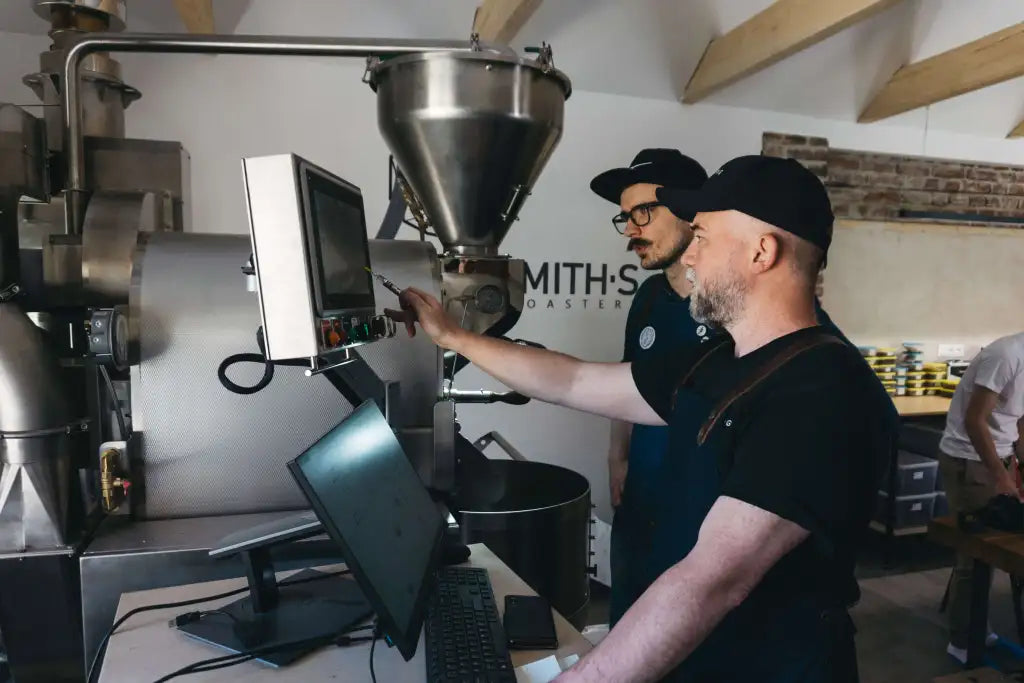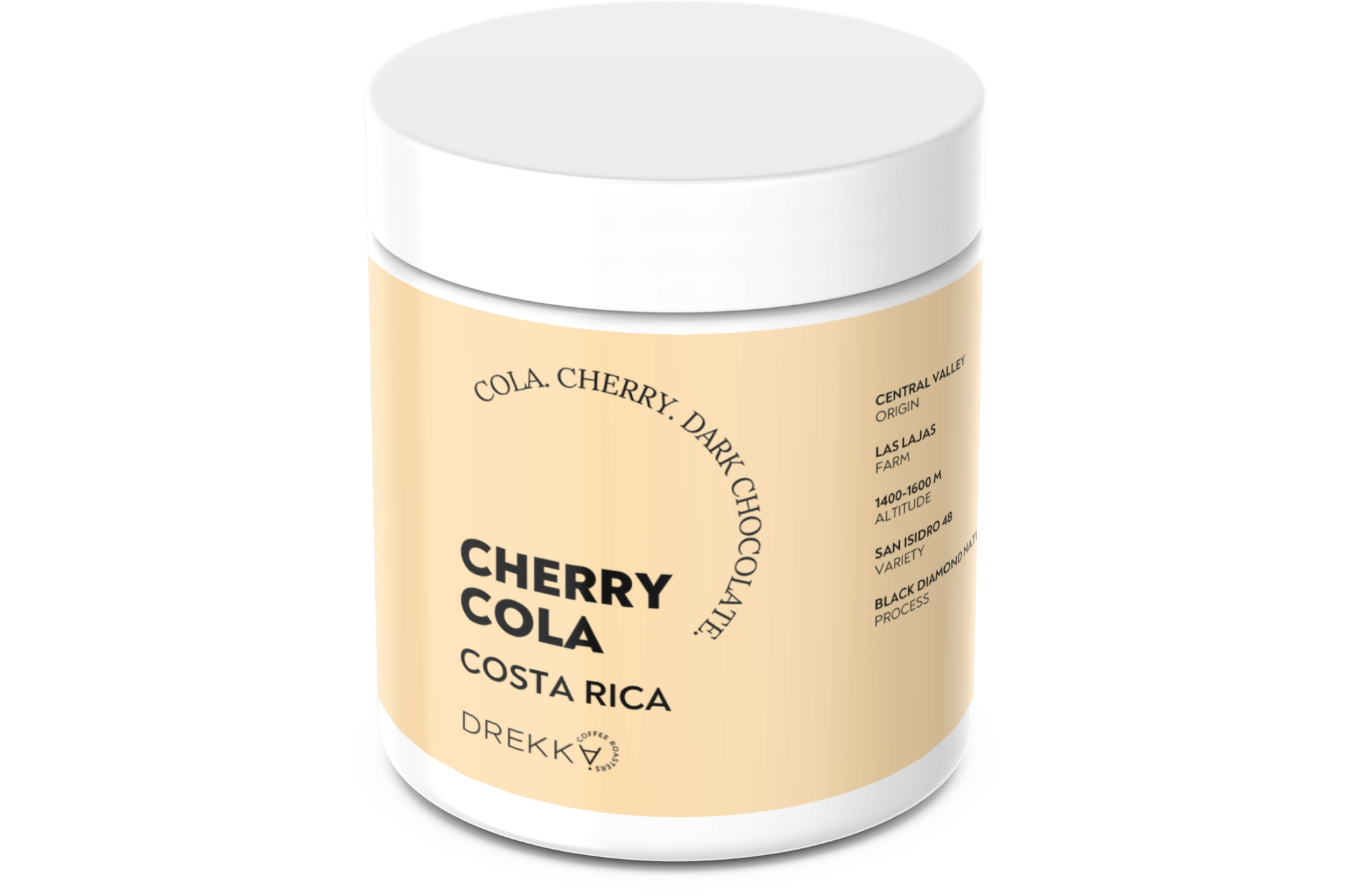This anaerobic natural lot comes from the Koerintji Barokah Bersama cooperative, located on the lush volcanic plateau at the foot of Mount Kerinci on the island of Sumatra. The region is part of the Pacific Ring of Fire, a 40,000-kilometer chain of over 450 volcanoes known for their geological activity. The fertile volcanic soil left behind by historic eruptions makes the area ideal for coffee cultivation.
The cooperative was founded in 2017 and is made up of 320 smallholder farmers, each managing farms between 0.5 to 2.5 hectares in size. Coffee is their main cash crop, though many also grow vegetables, potatoes, and fruits for personal consumption, and some supplement their income by working on nearby tea plantations. The cooperative model has been transformative in Sumatra, allowing farmers to share resources, receive training, and negotiate better prices together - tools they lacked as individual producers.
Koerintji Barokah Bersama is led by Triyono, who plays an active role in guiding both cultivation and post-harvest practices. The cooperative operates nine UPH stations - local collection and processing centers where cherries are delivered, sorted, and pre-processed before moving to the central station. These UPHs serve as small washing stations, each supporting a different cluster of farmers. Triyono oversees operations across the stations, supported by an agricultural expert who ensures consistency and adherence to quality standards.
The cooperative also has its own roasting facility and coffee lab, a rare and impressive feature for a group of this size and age. This allows them not only to process and export high-quality green coffee, but also to develop a deeper understanding of cup profiles and traceability.
This particular lot is composed of two key varieties grown widely in Sumatra:
• Andung Sari: a high-yield hybrid of Caturra and Timor Hybrid (HdT1343), known for its sweetness and compact growth, ideal for elevations above 1,250 meters.
• Sigarar Utang: a semi-dwarf hybrid developed in the 1990s by ICCRI (the Indonesian Coffee and Cocoa Research Institute), prized for its resistance to leaf rust, large cherries, and clean cup profile with herbal and fruity notes and a syrupy body.
The processing for this lot follows a meticulous anaerobic natural method. After hand-picking, the cherries are washed and sorted by density. Only the ripe cherries are selected, while underripe, overripe, or damaged ones are removed. The selected cherries are then sealed in 20 kg airtight bags and left to ferment for 7 days at a stable temperature of 18–22°C. After fermentation, the cherries are dried slowly on raised beds inside protective domes for 20–23 days, allowing for even drying and protection from rain or harsh sun. The coffee is then hulled, hand-sorted, and prepared for export.
Beyond quality, the cooperative is committed to fair pricing, environmental stewardship, and community investment. Farmers receive above-market prices for their cherries and benefit from stable buyer relationships. Profits are reinvested into infrastructure, while technical support and shade tree seedlings are distributed to improve long-term farm sustainability.
This coffee reflects not only the vibrant terroir of Mount Kerinci, but also the strength of cooperative collaboration and innovation in Sumatra’s growing specialty coffee movement.





